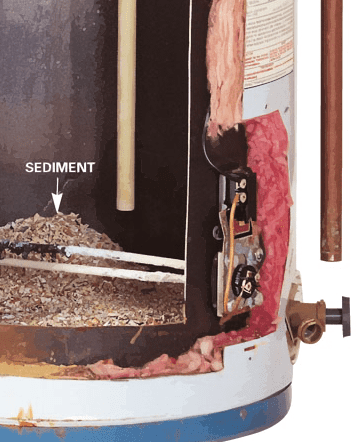Handling the Everyday Heater Urgent Problems
Handling the Everyday Heater Urgent Problems
Blog Article
Just how do you feel about Warning Signs You Need Water Heater Repairs?

A hot water heater is one of the most crucial standard appliances that can be discovered in a home. With water heaters, you don't need to experience the stress and anxiety of home heating water manually every single time there is a demand to take a bath, wash, or the recipes. There is constantly an opportunity that your water heating unit would act up as with the majority of mechanical tools.
It is essential to keep in mind any little malfunction and also tackle it swiftly prior to points leave hand. A lot of times, your water heater starts to malfunction when there is an accumulation of sediments as a result of continuous usage. As a precaution, routine flushing of your hot water heater is recommended to avoid sediment accumulation and stop functional failing.
Usual water heater emergency situations and exactly how to deal with them
Leaking hot water heater tank.
In this circumstance, you must transform off your water heater, allow it to cool down, and also meticulously look for the resource of the trouble. At times, all you need to do is to tighten up a few screws or pipeline connections in situations of small leaks. If this does not function and the leakage lingers, you might require to use the services of a service technician for an appropriate replacement.
Fluctuating water temperature level.
Your water heater could begin creating water of various temperatures normally ice hot or chilly hot. In this situation, the first thing you do is to ensure that the temperature is set to the preferred degree. If after doing this, the water temperature level maintains altering throughout showers or other tasks, you could have a defective thermostat. There might be a need to change either the thermostat or the heating device of your water heater.
Insufficient hot water
It might be that the water heater can't sustain the warm water demand for your apartment or condo. You can update your water heater to one with a larger capability.
Blemished or stinky water
When this occurs, you need to know if the concern is from the water or the storage tank source. If there is no amusing scent when you run cool water, then you are specific that it is your water heating unit that is defective. The smelly water can be created by rust or the build-up of bacteria or debris in the water heater tank.
Conclusion
Some property owners disregard little warning and minor faults in their hot water heater device. This just causes additional damage and also a feasible total failure of your device. You should deal with your water heater faults as quickly as they come up to stay clear of even more expenditures as well as unnecessary emergency problems.
With water heating units, you don't require to go through the stress and anxiety of heating water by hand every time there is a requirement to take a bathroom, do the laundry, or the recipes. Your water heater might start producing water of various temperature levels usually ice cold or hot hot. It may be that the water heater can not support the hot water need for your apartment. If there is no funny smell when you run chilly water, after that you are particular that it is your water heating unit that is faulty. The stinky water can be triggered by corrosion or the build-up of microorganisms or debris in the water heating system container.
Common Water Heater Issues and What You Should Do
What Type of Water Heater Do You Have?
Before we begin it’s first important that you identify the type of water heater you have on your property. There are two main types of water heaters out there: conventional and high efficiency.
Both of these types of products typically use either gas or electricity to heat power. There are also solar water heaters that use a thermal collector on the roof or yard to heat the water.
While these models are not as common, they can cut heating costs in half. In this article, we will focus on conventional and high efficiency.
How Do My Electric and Gas Water Heater Work?
Though they look similar, electric and gas water heaters work very differently. It’s important to know their basic function because often problems can be specific to the heating source.
In the electric model, a thermostat on the side of the machine detects the temperature of the water in the tank. When the temperature needs to rise electricity flows to a heating element suspended in the water.
Gas models also use a thermostat device — typically with a mercury sensor at the tip and an additional sensor called a thermocouple. The thermocouple detects whether the pilot light is on and controls the flow of gas.
When the thermostat drops below the appropriate level gas is released which becomes ignited by the pilot light. The flame heats the bottom of the water tank which causes hot water to rise and cold water to drop.
This natural circulation continues until the water reaches the desired temperature. Then, the thermostat triggers the gas control valve to shut off the flow of gas.
What Are the Most Common Issues and How Do You Fix Them?
https://happyhiller.com/blog/common-water-heater-issues-and-what-you-should-do/

I ran across that post about Warning Signs You Need Water Heater Repairs when doing research the internet. Are you aware of somebody else who is interested in the niche? Why not promote it. Kudos for your time. Visit us again soon.
Guaranteed satisfaction offered. Report this page